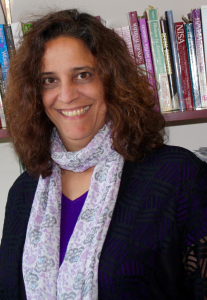When Alexander Eastwood entered the University of Toronto in 2008 to earn his PhD in English, he was planning to pursue an academic career devoted to teaching and research. Today, he serves instead as a senior policy advisor for the Government of Ontario’s Treasury Board Secretariat.
“I always saw myself as being an academic and went full steam ahead down that path without thinking about the job market or alternatives,” said Eastwood “but when the time came, I wasn’t willing to make some of the personal sacrifices necessary to follow the path, such as leaving Toronto.”
He began networking within government circles, knowing that “policy was a space where I could be absorbed by the details of a particular issue.”
Two years after landing his policy position, he is completely engaged with his work and has no plans to pursue a tenure-track academic position.
“This move allowed me to realize I had skills that applied in other contexts and broadened my horizons,” said Eastwood.
Read more about our graduate students and graduate education in the Faculty of Arts & Science.
Eastwood’s experience is becoming more common among PhD students as the number of full-time academic positions in North America shrinks. Various departments in Arts & Science at U of T have realized the value of showing students that there are alternatives to academic life.
“The overwhelming emphasis in our program is still to prepare students for academic jobs, but the difficulties in the job market have been fortuitous, because it made us think about these issues,” said Professor Paul Stevens, chair of the Department of English. “Before 2008, there was a healthy job market and the perception was that there was no need to discuss alternatives.”
The English department offers a mandatory professional skills course for all fourth-year PhD students. Although it has always focused on taking students through the preparation cycle of applying for academic jobs – preparing CVs and cover letters, attending interviews, etc. – today, it encompasses discussions of alternative careers, both in academic administration and outside academia.
“We bring in our own graduates or others to talk about the jobs they do and how they got there,” said Professor Heather Murray, the placement officer for the Department of English. “We discuss things you can do while you’re in the doctoral program that leave employment options open; flexible skills that you can develop while you’re here in addition to your academic work.”
Stevens noted that graduate students may not realize the breadth of experience they have.
“Most of them are doing incredibly high-level managerial jobs, teaching and managing classes,” he said. “They are articulate, smart and write quickly.”
“We try to get it across from the beginning of their programs that they’re not wasting their time and they are not failures if they decide to do something other than pursue an academic career; their skills actually transfer.”

The Department of Sociology is also working to ensure that graduate students understand the array of career options that exist. The department has introduced a mandatory professional development course for first-year PhD students and Professor Melissa Milkie, the department’s graduate chair, teaches a course that introduces students to academia and to sociology as a profession.
“Right from the beginning, we talk about the profession of sociology and where graduate students have gone to get jobs, including not-for-profit organizations, the government and other organizations that employ research scientists,” Milkie said. “Our students understand and appreciate that we are talking about all kinds of opportunities, both inside and outside academia.
“Although about 75 per cent of our graduates do end up in academia, some don’t want that career.”
Soon, third-year sociology PhD students will also be required to take an intensive writing session, helping them to achieve writing goals as they work on their dissertations.
“By starting our programming in year one, we set the stage for students to achieve their goals,” Milkie said. “It gets them thinking about planning beyond the semester and about goals within the program and outside, such as attending conferences and publishing in journals. We also discuss topics such as time management, funding applications and data collection.
Dana Wray, a first-year PhD student in sociology, is currently enrolled in the professional development course and finds it “very worthwhile.” She hasn’t decided on a career path, but says, “the good thing about the PhD program now is that it prepares you for options. The job market is a lot more competitive these days, but there are also lots of opportunities for intense, rigorous research outside academia.”
Wray is pleased that the course is part of her first year of PhD studies.
“There are opportunities to have frank conversations with professors working in academia and with PhDs outside the program,” she said. “It standardizes that information and brings it all together so you don’t end up wishing you had known some of these things when you first started out.”
Milkie has plans to augment the course’s impact by bringing alumni from outside academia back this spring to talk to students about alternative careers.
“I do think we recognize that the world is changing and so are the career opportunities,” she said. “It’s our responsibility to support and acknowledge students in achieving different outcomes. Research produces knowledge, and we need to demonstrate that those skills are applicable, no matter which path they choose.”

